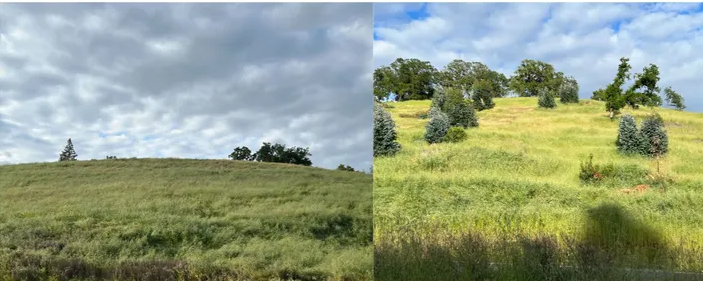Strike 2: State again denies Pleasant Hill’s Housing Element

PLEASANT HILL, CA (Aug. 24, 2023) — For a second time, the state Department of Housing and Community Development (HCD) has rejected the city’s Housing Element proposal, adding Pleasant Hill to a growing list of local communities trying to navigate the same seriously choppy seas.
Councilmember Sue Noack and Mayor Tim Flaherty expressed frustration and disappointment, respectively, in response to the July 31 letter addressed to Pleasant Hill City Manager Ethan Bindernagel.
The revised plan that the city submitted May 18 was shaped by guidance from consultants based on what the state had seemingly been looking for to meet the city’s objectives for affordable housing. That included the inclusion of two controversial tracts of land – Morello Terrace and Paso Nogal – located smack in the middle of single-family homes that generated huge public outrage.
Looking at housing options
The devil is in the details for city leaders as they wade through a six-page letter of legal minutia that describes many statutory requirements that Pleasant Hill still has failed to meet in seeking certification of its Housing Element.
City leaders must identify areas within the city limits where 1,803 units can be developed to meet users categorized as very low-, low- and moderate-income earners.
“What they are asking for is difficult to achieve considering we are pretty built out. I understand the goal, but I am not sure how we can do it.” said Noack, lamenting: “I don’t know where the other sites are.”
The council will hold an extensive discussion of the state’s decision at the first meeting in September. Noack is requesting that the city manager and staff come before the council to explain the letter so everyone – the public included – knows what is being asked of the city.
“The risks of not getting it certified are pretty severe,” said Noack, including the state suing the city and the state taking over the permitting process for housing in Pleasant Hill.
“It’s not a risk we can really take,” she added.
Defining ‘higher resource’ areas
During the process, the state has directed communities to spread out low-income units so they are not developed in just one area. Buzz words like “higher resource” have been used to define these target areas.
But, Noack says the problem is how one defines “higher resource.”
The state wants these homes built in areas where there are higher incomes, schools and parks. In contrast, Noack suggested cities and the public see “higher resource” areas as where mass transit, stores and services are located for the benefit of occupants of affordable housing.
“They are not helping us to communicate with the people,” she said, noting that the state “is leaving us in a very difficult position.”
Working toward January deadline
According to Noack, the situation is further complicated because HCD’s goals for housing conflict with other state needs such as mass transit for the public and wanting that developed near housing.
Rezoning of land is another part of the process that Pleasant Hill has been wrestling with as officials work to meet the state’s expectations for its Housing Element, in accordance with the Regional Housing Need Allocation (RHNA). Because the city has not achieved certification on time, it lost out on a three-year window to tackle the rezoning of properties that seemingly would help it meet the Housing Element objectives. As a result, city officials are now facing a January 2024 deadline to rezone 967 units to meet the RHNA.
As the city moves forward, Flaherty noted the state’s expectation that municipalities will play an active role in financing development of land identified for the housing described in the Housing Element.
“We have no budget or ability to do it,” he said. “It is putting the city in a difficult situation.”
After officials thought the city was on target, the letter opened a host of new areas of concern for Pleasant Hill, Flaherty said in expressing his disappointment with the state’s response to the city’s good faith efforts to meet expectations.

David Scholz
David Scholz is back in journalism as a freelance writer and photographer after nearly two decades in education. Prior to moving into teaching in 2000, he worked as a full-time journalist since 1988 for rural community and small daily newspapers in Central Ohio and Northern Nevada, and later in California with The Business Journal in Fresno and dailies in the Bay Area, including The Oakland Tribune and The San Francisco Chronicle. More recently Scholz also worked in an editing, writing, and page layout role with the Rossmoor News.
